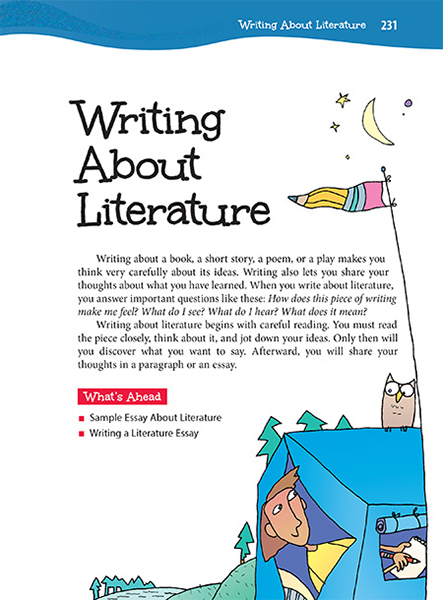Page 231 from

Start-Up Activity
Introduce this chapter by discussing theme, or the central message in literature. Theme is a big-picture lesson about life revealed through the words and actions of the characters. Share a few familiar stories with recognizable themes. For example, one theme in Charlotte's Web is that true friendship involves loyalty and sacrifice.
You can have your students ask these questions to identify themes in stories or poems:
- What does the main character learn in the story?
- How does the main character change?
- How am I changed by reading this story or poem?
- What is the author trying to say about life?
Think About It
“The books that help you the most are those that make you think the most.”
—Theodore Parker

Start-Up Activity
Introduce this chapter by discussing theme, or the central message in literature. Theme is a big-picture lesson about life revealed through the words and actions of the characters. Share a few familiar stories with recognizable themes. For example, one theme in Charlotte's Web is that true friendship involves loyalty and sacrifice.
You can have your students ask these questions to identify themes in stories or poems:
- What does the main character learn in the story?
- How does the main character change?
- How am I changed by reading this story or poem?
- What is the author trying to say about life?
Think About It
“The books that help you the most are those that make you think the most.”
—Theodore Parker

